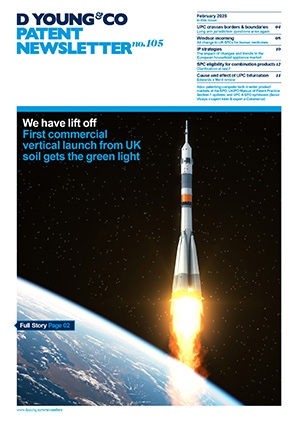CNIPA issues further revision of draft examination guidelines - a summary of new major changes
In light of the new measures brought about by the latest version of Chinese Patent Law, which came into force on 01 June 2021, China’s National Intellectual Property Administration (CNIPA) has issued a further revision of draft amendment for the Patent Examination Guidelines (the draft guidelines) for public consultation. This is the fourth draft amendment following the previous ones issued in September 2020, November 2020, and August 2021.
According to CNIPA’s announcement, this revision of the draft guidelines covers 48 areas of the Chinese Patent Office proceedings and examination practices, in addition to a whole new chapter devoted to international designs procedures.
The proposed amendments are mainly refinement or elaboration of provisions introduced in previous drafts, such as procedures for adding, correcting and restoring priority rights; amending a patent application by referencing an earlier patent application; and the processing and examination of international design applications. In this article we will provide a brief summary of the new major changes in the draft guidelines.
Patent term adjustment
Patent term adjustment (PTA) was initially proposed in the Draft Implementing Regulations of Patent Law of 2021 to provide compensation of patent term for unreasonable delay caused by the patent office during the examination process for an invention patent. The draft guidelines set out the calculation of unreasonable examination delay, which is the patent grant date minus the date that has elapsed four years from the patent filing date, and has lapsed three years from the date of requesting for substantive examination. Notably, delays caused otherwise by stay of proceedings, preservation measures, administrative litigation proceedings, or re-examination proceedings after patent amendment are not considered unreasonable delays for the calculation of PTA.
Patent term extension
Patent term extension (PTE), which is analogous to the Supplementary Protection Certificate (SPC) in Europe, was also proposed by the Draft Implementing Regulations to provide patents (mainly pharmaceutical patents) with a compensation period for obtaining regulatory approval for the related active ingredients.
The draft guidelines provide for the calculation of the PTE, which is the date when the new drug gets approved for marketing in China, deducting the date that has lapsed five years from the patent filing date. Meanwhile, the compensation period shall not exceed five years, and the total effective patent term shall not exceed 14 years after the drug marketing approval.
Patent open license
The CNIPA launched the “Trial Program on Patent Open License” in May 2022 to propel patent rights commercialisation under the 14th Five–Year National Plan for IP Protection and Application. The draft guidelines stipulate the detailed procedure for submitting an open license statement, based on the experience from the trial programme. Specifically, an open license statement shall include the patentee’s commitment to comply with the conditions of the open license statement, and a brief description to explain the basis and method of calculating the license fee.
The patent license fee shall generally not exceed 20 million Chinese Yuan if it is paid by a fixed fee. If the licence fee is paid in the form of royalty, the net sales royalty is generally limited to 20%, and the profit royalty is generally limited to 40%.
Patent ownership disputes and invalidation proceedings
The draft guidelines propose that when a stay of invalidation proceeding is sought by parties involved in ownership disputes of the same patent the collegiate panel may decide not to suspend the invalidation proceedings, if an invalidation decision is ready to be issued following the investigation that has been conducted. Additionally, the request for stay may be refused if the relevant ownership dispute apparently lacks sufficient grounds and evidence for the existence of a genuine ownership dispute, the request is clearly dishonest and improper, or the stay of proceedings would be apparently contrary to the interest of the parties or general public.
Observers have pointed out that the proposed amendment targets (addressing the procedural abuse in which the party “creates” artificial ownership disputes in order to delay the invalidation proceedings), result in an excessively long invalidation trial period.
Patent amendment during invalidation proceedings
The draft guidelines explicitly state that any amendment to the patent claims during invalidation proceedings must be based on the reasons for invalidation or deficiencies raised by the collegiate panel. Otherwise, the collegial panel may reject the claim amendment, even if it is an appropriate limitation of the technical solution and satisfies the requirements of other provisions.
Abolishing the 15-day rule for electronically-filed applications
The draft guidelines also propose that the original “15-day rule”, which provides for adding a 15-day grace period to deadlines triggered by receipt of a patent office communication, will no longer apply to electronically delivered documents.
The public consultation ended on 15 December 2022. Taking note of the recently announced CNIPA plans for promoting the implementation of the “Opinions on Strengthening Intellectual Property Protection”, which states that the draft guidelines shall be finalised by the end of 2022, we believe the ultimate version will not deviate much from the current draft.


